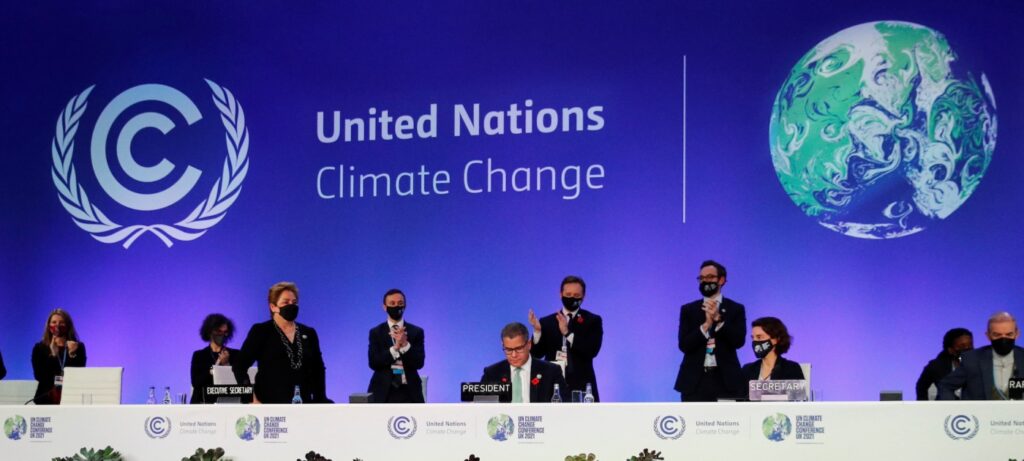
As the world marks the ten-year anniversary of the Paris Agreement, global leaders, climate experts, and environmental activists gathered for the UN Climate Summit to discuss one of humanity’s most pressing challenges: the climate crisis. The summit, held in the wake of another record-breaking year for global temperatures, reinforces the urgency of swift, comprehensive climate crisis action to mitigate environmental destruction and prevent further damage. Despite progress, the gap between pledged actions and actual outcomes remains significant, sparking calls for countries to accelerate their efforts.
Paris Agreement: A Decade of Challenges and Achievements
When world leaders signed the Paris Agreement in 2015, it was a groundbreaking accord aimed at limiting global temperature rise to below 2°C, with ambitions to keep it under 1.5°C. Over the last decade, countries have made strides, with numerous governments pledging net-zero emissions by mid-century, transitioning toward renewable energy, and investing in sustainable practices. However, the collective impact has fallen short, with global emissions continuing to rise, extreme weather events becoming more frequent, and vulnerable ecosystems under severe threat.
Experts at the summit stressed that while the Paris Agreement laid a strong foundation, implementation has been uneven, especially among some of the world’s largest carbon emitters. At this juncture, reinforcing accountability and stepping up financial commitments are essential for achieving the goals set nearly a decade ago.
Key Areas of Focus: Climate Finance and Accountability
One of the most critical topics at this year’s summit is climate finance. Developed nations previously committed to mobilizing $100 billion per year to help developing countries combat climate change and transition to green energy. Yet, according to recent UN reports, this funding target remains unmet, which has hampered the ability of many nations to invest in climate-resilient infrastructure.
The UN emphasizes that financial assistance must increase, especially for small island nations and developing countries that are disproportionately affected by climate change. Additionally, discussions centered on the need for transparent reporting and accountability mechanisms to ensure that funding is used effectively for impactful climate crisis action. Transparency will build trust among nations and encourage additional investments in clean energy, sustainable agriculture, and climate adaptation programs.
The Role of Renewable Energy in Climate Crisis Action
Renewable energy is a primary solution discussed at the UN Climate Summit as a way to reduce dependency on fossil fuels, a major contributor to greenhouse gas emissions. Solar, wind, and hydropower are gaining momentum globally, with numerous countries already leading by example. The International Renewable Energy Agency (IRENA) reports that renewable energy capacity has nearly doubled over the past decade. However, the transition from fossil fuels is not happening quickly enough to meet the Paris targets.
The summit’s speakers emphasized the need for government incentives, private sector investment, and policy frameworks that accelerate the adoption of renewables. Some nations are already incorporating ambitious plans to cut fossil fuel usage, while others continue to rely heavily on coal, oil, and natural gas. For the UN’s climate crisis action goals to succeed, nations will need to align their energy policies with sustainable and renewable practices.
Adaptation and Resilience: Preparing for an Uncertain Future
While reducing emissions remains a priority, adaptation and resilience have become increasingly central to climate crisis action. Rising sea levels, heatwaves, hurricanes, and floods threaten millions of lives, with severe impacts on agriculture, water resources, and infrastructure. The UN has called for greater investment in adaptive technologies and strategies, especially for vulnerable communities and regions.
Adaptation plans include infrastructure improvements, sustainable agricultural practices, and early-warning systems for extreme weather events. Countries like the Netherlands have led the way in adaptive infrastructure with flood barriers and advanced water management systems, serving as a model for other regions facing similar climate risks. Investing in adaptation not only safeguards lives but also strengthens economies, helping communities recover more quickly from climate-related disasters.
The Impact of Global Temperatures and Extreme Weather
The scientific community agrees that rising global temperatures directly contribute to the frequency and severity of extreme weather events. According to a recent report by the Intergovernmental Panel on Climate Change (IPCC), limiting warming to 1.5°C could drastically reduce the risks associated with climate change. However, with current emission levels, temperatures are on track to rise beyond this threshold, creating a more hostile and unpredictable climate environment.
Extreme weather events, from devastating wildfires in California and Australia to historic floods in South Asia, highlight the human and economic toll of inaction. At the summit, leaders warned that failure to act decisively could lead to cascading impacts, including forced migration, food insecurity, and social instability. Climate crisis action, therefore, is not only an environmental necessity but also a critical component of global security and prosperity.
Calls for Youth and Grassroots Involvement in Climate Crisis Action
Youth activists and grassroots organizations have become influential voices in the climate movement, pushing for immediate climate crisis action and holding leaders accountable. Movements like Fridays for Future, led by youth climate activists worldwide, have brought climate awareness into the mainstream, inspiring a new generation to advocate for environmental justice.
The UN summit acknowledged the importance of involving young people and local communities in climate decision-making. Engaging youth ensures that climate policies are forward-thinking and sustainable. Additionally, grassroots initiatives empower communities to implement localized climate solutions, creating a more inclusive approach to the crisis.
Looking Ahead: A Decisive Decade for Climate Crisis Action
The UN Climate Summit has underscored that this decade is pivotal in the fight against climate change. Achieving the goals of the Paris Agreement will require unprecedented collaboration, innovation, and dedication. Governments, private sectors, and civil society must unite to promote climate-friendly practices, fund green projects, and transition away from high-emission industries.
The summit’s key takeaways point to the need for decisive climate crisis action on multiple fronts: implementing stronger policies, scaling up renewable energy, providing climate finance, and investing in adaptive measures. While challenges remain, the path forward is clearer than ever. If nations uphold their commitments, there is hope for a sustainable and resilient future that benefits all.
In conclusion, the UN Climate Summit has highlighted the urgent need for climate crisis action, especially as the effects of climate change become increasingly apparent. With rising global temperatures, extreme weather events, and continued environmental degradation, the time for action is now. By aligning policies, increasing financial support, and fostering collaboration, the global community can work together to combat the climate crisis and pave the way for a sustainable future.
Image credit – Reuters Connect
https://www.wri.org/insights/2023-ipcc-ar6-synthesis-report-climate-change-findings
https://www.mordorintelligence.com/industry-reports/global-renewable-energy-market-industry


